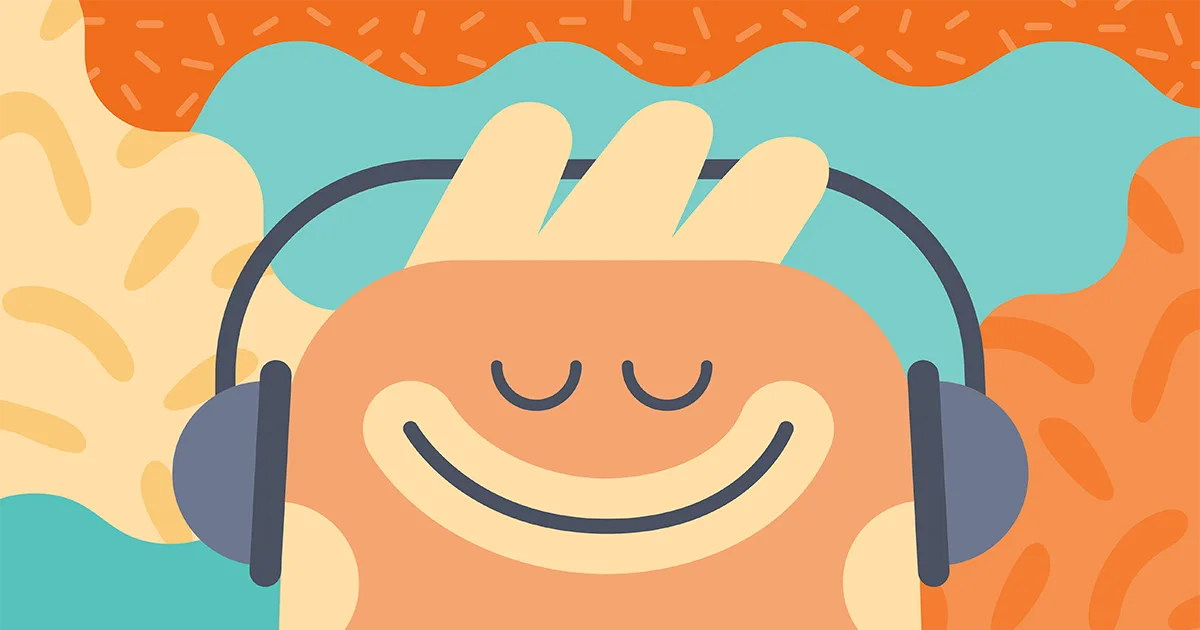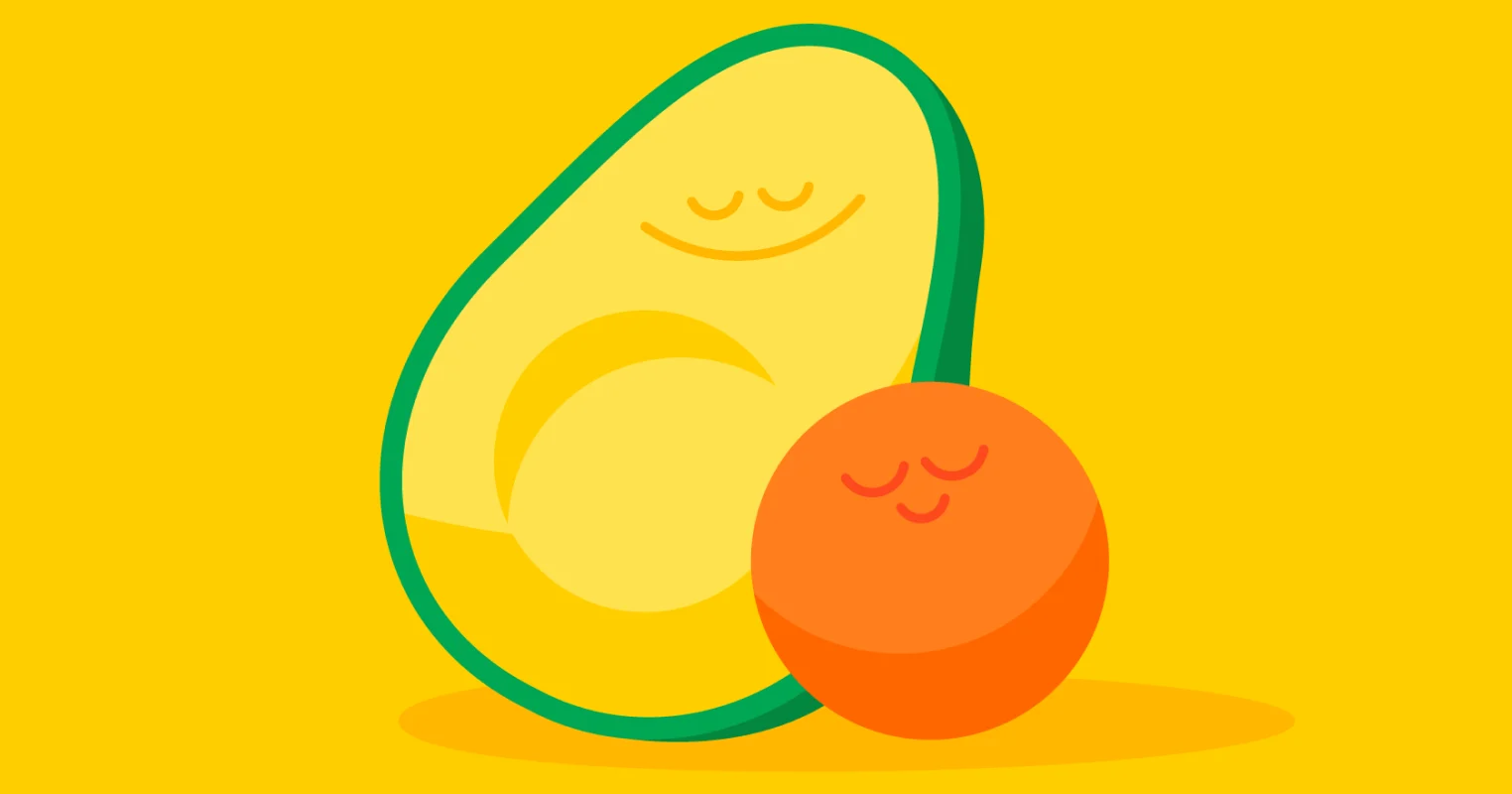Stress 101
By Your Headspace Mindfulness & Meditation Experts
Nov 8, 2021
Stress is a normal, unavoidable fact of life. Every single person experiences stress — in different ways and in different phases of life. We all face challenging situations that set our hearts and minds racing, and might even feel too much to handle.
But while there’s no escaping stress, we can change our relationship with it, learn better ways to cope with it, and skillfully manage it. Being stressed doesn’t have to mean losing your head, feeling overwhelmed, or being reactive.
So how do we start approaching stress in a different way? How can we find much-needed relief? Well first, we need to understand stress — what it is and why it affects us in the ways it does.
Once we have this awareness, we start to lessen its hold over us — we start to understand our ability to not feel overtaken by the things that stress us out. Here, we’ll break it down and offer tools, tips, and techniques to help, all backed by science.
In this article
- Understanding stress
- Causes of stress
- The signs and impact of stress
- Types of stress
- Acute stress
- Chronic stress
- Positive stress aka eustress
- Stress fatigue
- How to relieve stress
- Breathing exercises to reduce stress
- Meditation for stress
- Stress and diet
- Stress and exercise
- Stress and sleep
- Financial stress
- Political stress
- Holiday stress
- Work stress
- Parenting and relationship stress
- How to relax
- Try 18 meditations to reduce stress

Mini-Meditation: Letting Go of Stress
1 min
Understanding stress
Stress can be the distress signal that makes us flee from danger, or it can be the motivating pressure to hit that deadline.
It’s a different state to anxiety, although there are some overlaps. Stress normally kicks in due to a situation we can see and comprehend, while anxiety is a visceral feeling that can linger, and we’re not always clear why it’s happening.
When we’re in the grip of stress, it can feel overwhelming and, sometimes, isolating. But we can start to loosen its grip by first understanding how it plays out. Once we bring some curiosity to our stress, we can put some space between the feeling and ourselves. It's in this space that we can learn to manage our thoughts and emotions, and better manage stress as and when it arises.
Headspace co-founder and former Buddhist monk Andy Puddicombe says, “Is stress a physical feeling? Is it an emotional feeling? Is it a story in the mind? Is it a combination of all three and if so, which one starts it all off?
“If you take the time to get to know stress, then it can start to look like an altogether different beast. In fact, strange as it may sound, stress might even turn out to be your friend.”
Causes of stress
To understand why we feel stressed, it’s helpful to understand the role of the amygdala, essentially two almond-sized processing chips in the brain that govern our senses, decisions, and moods.
The amygdala works like our emotional thermostat and regulates our reaction to certain forces like stress and fear. Based on the level of threat it senses, it either remains on a cool and calm setting, cranks up like it’s supposed to in reaction to normal stressors, or it may overheat when we feel overstimulated, making us irrational and reactive.
In evolutionary terms, the amygdala has always been a great asset for alerting us to life-and-death situations — like an approaching wild animal — and triggering our fight or flight response. But in modern times, it has been conditioned to react in a similar way to day-to-day causes of stress, so an approaching deadline can start to feel just as threatening as a hungry wolf.
The good news is that our minds can be trained to manage stress better. Studies using MRI scans have shown a regular meditation practice can shrink the amygdala, which helps us respond rather than react to stressful situations.
Keep reading: Check out Meditation for relaxation to learn more about this effective tool for easing stress.
The signs and impact of stress
The signs of stress can manifest themselves differently in all of us. It can make us feel short-tempered and want to scream, or overwhelmed and want to hide.
It affects all systems of the body, with symptoms including our heart beating faster, pulse racing, and blood pressure rising. Meanwhile, if the brain is under too much stress, it can become tuned to survival-mode, while more complex thoughts take a back seat.
While we’re well equipped to deal with stress in small doses, if we experience too much over too prolonged a period, our physical and mental health can suffer.
That does not mean we should, or could, avoid all stress. But we can reduce its negative effects by changing the way we react to emotions and feelings that tend to fuel stress.

Types of stress
Stress has many causes, comes in many forms, and can mean something different to everybody. But essentially, it’s the mind wanting things to be different from how they are. It can arrive quickly and unexpectedly, momentarily throwing you off balance. Or it can build more slowly, taking longer to pass.
It can be physical and impacted by trauma or illness, or psychological, like emotional stress caused by bereavement or relationship issues. However it shows up, stress can manifest as impatience, irritability, frustration, anger, sadness, or a sense that you are at the end of your rope.
Often, it’s caused by everyday life. Anything that requires us to adjust to change can cause stress. It’s a completely natural emotion but doesn’t have to dominate our lives. It helps, of course, if we can unpack the different types of stress.
Acute stress
We all experience acute stress, or short-term stress. It can occur in unexpected situations, such as when we lose control of our car, or sometimes by choice, like when we ride on a roller coaster. But it doesn’t need to be a high-octane event — acute stress can arise any time we change direction in our lives.
It can be a useful sensation, helping to prepare ourselves for threats or challenges. But it should subside once the danger passes, and our body should return to normal. If unpleasant, distressing symptoms don’t fade in the weeks following an intense or traumatic event, it’s important to consult with a medical professional.
Chronic stress
When stress is more constant and persists over a longer period of time, it’s called chronic stress. And while our bodies were built to handle acute stress, chronic stress can negatively affect our health if left untreated.
If we constantly feel stressed, our body and mind does not have the chance to relax and renew, and remains in a state of arousal which puts pressure on virtually every system in our body. This can cause a variety of problems including anxiety, insomnia, high blood pressure, a weakened immune system, and even contribute to the development of major illnesses.
But we can manage and alleviate chronic stress by improving our lifestyle and living more mindfully, working to identify the causes of our stress, and making necessary behavioral changes to overcome them.
Keep reading: How to calm down offers tips on how to find peace in stressful situations.
Positive stress aka eustress
While most of us associate stress with negative experiences, stress can be good for us. Eustress — from the Greek word ‘eu’ meaning ‘good,’ as in ‘euphoria’ — is positive stress.
This is the stress that keeps us excited about life. It’s part of that same feeling we experience on a roller coaster, or from the twists and turns of life, as we arrive on a first date, or on the first day of a new job. These challenges can be exciting and enjoyable to overcome, and can help give life meaning.
Plus, we can learn from how we embrace and manage eustress to find a new perspective when approaching the less enjoyable sources of stress in our lives — to try and reframe these events as a challenge rather than a problem.

Stress fatigue
Life is all about balance. And even the more positive type of stress can be overwhelming if we never allow our bodies and minds to relax.
When that stress becomes too much, whether caused by work, family, or social stressors, it can cause stress fatigue, or emotional exhaustion.
This can lead to us feeling trapped or stuck. But as challenging as that can feel, there is a way out if we take control and make some positive changes to our lives.
Keep reading: Try How to stop worrying for tips on finding footing in an uncertain world.
How to relieve stress
It’s not possible to control what is happening around us, but we can control our reaction to these events.
There are many lifestyle choices we can make to help us manage and relieve our stress, and taking up a meditation practice has been proven to be among the most effective.
A 2018 study found that people who used Headspace for only 10 days reported an 11% decrease in stress. After 30 days of using Headspace, they reported a 32% decrease.
By practicing meditation and mindfulness, we can learn more about our stress, soften the way we perceive it, and react to it in a more accepting way. How? Because by sitting with a stressed mind, we learn to give busy thoughts and difficult emotions the room to arise, without getting swept away by them. We show the mind how stress doesn’t have to destabilize us, or overwhelm us.
Keep reading: How to relieve stress suggests stress reduction techniques to help us reframe stressful situations.
Breathing exercises to reduce stress
One of the most effective stress management tools is something we carry with us every second of the day: our breath.
When we are stressed, our breath often becomes short and shallow. And many of us have unintentionally become habitual shallow breathers, which can keep the body in a cycle of stress.
Deep breathing exercises can have a profound effect on our state of mind, and trigger a calming response which counters stress by decreasing our heart rate, blood pressure, and muscle tension.
And by practicing breathing exercises as part of our mindfulness routine, we can then call on these techniques when we need them in moments of stress in our lives.
Keep reading: Find out more about Breathing exercises to reduce stress and which are right for you.
Meditation for stress
When we are stressed, it can feel counterintuitive to sit still and do nothing. So meditating can feel like the last thing we want to do. But when you feel like you can’t think straight, or you have too much going on, pressing pause — even if it’s for two minutes — is the best way to unwind the mind.
The point of meditation in these circumstances is to provide more spaciousness of mind; in that space, we become aware of our stress. We don't resist it or try to push it away. We simply sit and let all thoughts and feelings rise to the surface and, when they do, we let them go by returning our attention to the breath. With practice, this becomes easier over time, and we learn to rely on the breath as a release valve for stress.
Keep reading: Learn more about Meditation for stress and try some stress relieving exercises.

Stress and diet
Sometimes we can overeat due to strong emotions or feelings, rather than responding to our internal cues of hunger.
But using food as a coping mechanism can perpetuate an unhealthy cycle. Feeling stressful emotions can lead to overeating, often seeking out high-calorie and high-fat “comfort foods,” which then contribute to more negative emotions or stress.
The eminent American Psychological Association survey, Stress in America, examined the relationship between food and stress and found that 38% of adults overeat as a way to try to manage or distract from stress.
But a healthy diet can reduce stress. And by putting awareness on the menu, engaging the senses, and practicing mindful eating, we are better able to see our patterns of behaviors around food. This means we are less inclined to eat in an emotional way, which ends the stress-eating cycle.
Keep reading: Read more tips on Mindful eating and how to have a healthier relationship with food.
Stress and exercise
Exercise has the rare ability to both exhilarate and relax. It can reduce levels of cortisol, the body’s stress hormone, and stimulate the production of endorphins, our brain’s natural painkillers and mood boosters.
And the emotional benefits of exercise include the sense of accomplishment and confidence that come with committing to a healthy habit.
To keep our body and mind in the best possible shape, we should exercise both. So by bringing awareness to the body while we exercise, we can improve not only our mobility and strength, but also our confidence and focus.
Keep reading: Stretching for beginners suggests some basic exercises to unite our body and mind with movement.
Stress and sleep
Often our worries race through our mind at the exact time we want to slow down and relax the most: when our head hits the pillow.
Sleep and stress can be tricky bedfellows, with their delicate relationship sometimes referred to as the “sleep-stress cycle.” Being stressed can get in the way of good quality rest, while a lack of sleep makes us feel more stressed.
By using tools to help us relax at night, including wind down exercises, sleepcasts, and sleep music, we can help the body and mind to switch off.
Keep reading: Sleep and stress offers further advice for addressing stress that is getting in the way of our Zzzs.
Financial stress
If we worry about money, we should know we are not alone. In fact, 60% of Americans find finances a significant source of stress.
But instead of battling with, or running from, concerns about money, meditation can teach us to gently lean into them, which diminishes their power over us.
Then, in a less reactive state, we can confront them with a calm and open mind, and take steps to becoming more financially healthy.
Keep reading: Find out more about Meditation for financial stress and the Headspace Mindful Money collection, where experts discuss how to develop a better relationship with our finances.

Political stress
Engaging in democracy is one of our fundamental rights to make our voice heard. It should make us feel empowered and confident. Yet politics is, of course, also a huge source of stress for many.
Washington DC-based psychologist Steven Stosny even coined the term “election stress disorder” to describe what he has witnessed being experienced by patients in his clinic.
It is important to stand up for our rights, fight for what matters, and to vote. And by training our minds to deal with the stress that accompanies these important issues and events, we are better equipped to make our mark on the world.
Keep reading: Check out Politics without panic for a selection of resources and exercises to help us navigate the mixed emotions of politics.
Holiday stress
‘Tis the season to be jolly or, for some of us, rather stressed! There’s something about the hustle and bustle of the holiday season that can even make the most laid-back folk feel stressed out.
But gift-giving, traditions, and coming together with friends and family could be a source of great joy.
So by reframing our stress through the practice of mindfulness to ground ourselves in the moment and embrace the small pleasures, we can enjoy some happiness and calm amid the chaos.
Keep reading: Managing stress around the holidays helps us connect with the important things in life, which is what this time should be all about.
Work stress
Experiencing stress is part of most people’s lives at work, and knowing how to harness it to not negatively impact our performance is a skill worth having in our toolbox.
It can serve an important purpose, like providing the energy to push ourselves to produce our best work. But too much stress at work can negatively affect our clarity, decision making, and even lead to burnout.
To be our most productive at work, we need to be healthy, engaged, and truly present. And by practicing mindfulness, we learn to let go of self-criticism, not over-analyze the past or worry about the future, and focus on the task in hand.
Keep reading: Headspace for Work offers mental health solutions tailored for businesses.
Parenting and relationship stress
We would love for our homes to be a haven from stress, but this of course cannot always be the case.
Our home life can be complicated. Even those closest to us can have different views and ideas that can cause conflict. But by approaching relationships with a warm and open mind, we are better placed to find harmony and solutions.
Also, applying the principles of mindfulness specifically to parenthood — being fully present for our children as we move forward task by task — can help prevent the day from becoming overwhelming and create a calmer environment at home.
Keep reading: What is mindful parenting? explains more about how breaking our day into manageable chunks can help us be more engaged with our children.

How to relax
If we can counter our stress response with what’s called the “relaxation response,” our bodies stop releasing stress hormones, our heart rate slows, our breathing deepens, and we begin to feel a sense of calm.
While practicing meditation, we also practice triggering our relaxation response, so we can then call on it when we need it most.
Headspace co-founder Andy recommends making meditation part of our daily routine by practicing for 10 minutes each morning. But, if the thought of finding 10 minutes to meditate stresses you out, know that shorter meditations, when practiced consistently, can be beneficial as well. The more we practice any meditation, the more effective it can be.
Keep reading: Check out more tips and techniques at How to relax.
Try 18 meditations to reduce stress
Looking for meditations that help in managing stress? The Headspace app has a Reframe stress and relax collection that offers subscribers several courses and single meditations for immediate and long-term stress reduction, including:
Learn to reframe negative emotions and let them go.
Learn to work with a restless mind more skillfully.
Connect with anger and use it to train your mind.
Train your mind to be more comfortable with change.
Being present helps us leave regret in the past.
Give yourself room to breathe.
Step away from worried thoughts.
Anchor your mind and body in the present.
Let go of whatever’s causing you to feel frustrated.
Bring an unsettled mind back to the subject at hand.
Change your relationship to physical pain.
Step away from stress and into the moment.
Lead your mind to a natural place of rest.
Let go of any tension or busyness in the mind.
Let go of tension and find a little peace of mind.
Recognize what’s occupying your mind and let it go.
Press pause in the middle of your workday.
Find some focus and relaxation during a busy day.
Meditation is not about ridding ourselves of stress or even ignoring it, but about becoming more aware of the feelings and emotions it causes. This gives us a new perspective to not let these thoughts overwhelm us or become caught up in the storylines they can create.
As described in Headspace’s Blue sky animation, our minds are like a bright, blue sky, and our thoughts and feelings — including stress — are like clouds that appear. Like clouds, these thoughts and feelings always pass, yet the blue sky is always present.


Be kind to your mind
- Access the full library of 500+ meditations on everything from stress, to resilience, to compassion
- Put your mind to bed with sleep sounds, music, and wind-down exercises
- Make mindfulness a part of your daily routine with tension-releasing workouts, relaxing yoga, Focus music playlists, and more
Annual - billed at $69.99 USD/yr
14 days free
$5.83 USD/month
Monthly
7 days free
$12.99 USD/month


Stay in the loop
Be the first to get updates on our latest content, special offers, and new features.
By signing up, you’re agreeing to receive marketing emails from Headspace. You can unsubscribe at any time. For more details, check out our Privacy Policy.
- © 2025 Headspace Inc.
- Terms & conditions
- Privacy policy
- Consumer Health Data
- Your privacy choices
- CA Privacy Notice






